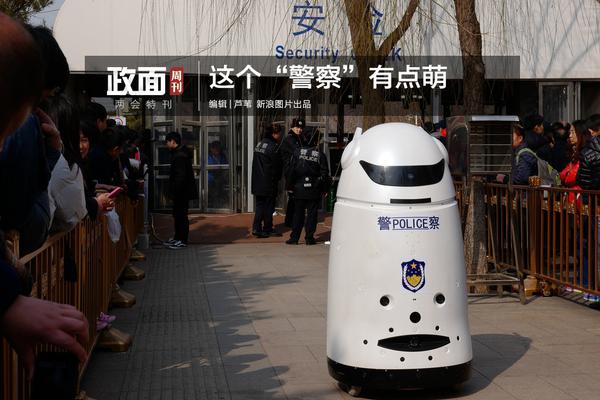
System error, also known as measurable error, is caused by some common causes in the process of analysis operation.
Random error: It is a mutually compensated error formed by a series of small random fluctuations of relevant factors in the measurement process. System error: refers to a non-random error. For example, the bias error that violates the random principle, the error caused by the registration record in the sampling, etc.
System error: also known as regular error, because its size and symbol do not change or change according to a certain law. Its main feature is that it is easy to eliminate or correct accidental error: also known as random error, because its appearance is completely random.
1. System error is caused by some imperfections of the instrument, limited measurement technology or insufficient experimental methods to ensure the correct experimental conditions and other reasons. For example, when the time of measuring the meter is stopped, the stop meter is inaccurate and slow. , the time interval of the measurement is always small. The random error is characterized by its randomness.
2. Accidental error: the error caused by the inaccuracy of the observer's reading. Features: Measurement results are large and small. System error: errors caused by inaccurate measuring instruments and imperfect experimental principles.
3. System error refers to a non-random error. For example, the bias error that violates the random principle, the error caused by the registration record in the sampling, etc. It makes the overall characteristic value too high or too low in the sample.
Finiteness: Under certain observation conditions, the absolute value of the accidental error will not exceed a certain limit. ( 2) Concentration: that is, the error with a smaller absolute value is more likely to occur than the error with a larger absolute value. ( 3) Symmetry: The probability of positive errors and negative errors with equal absolute values is the same.
Adventional error is also known as random error. The main differences from system error are as follows: different causes of occurrence. Random error: the reason for its occurrence is the influence of various unstable random factors in the analysis process, such as the instability of environmental conditions such as room temperature, relative humidity and air pressure.
The difference between system error and accidental error is that system error is inevitable.Free (but can be reduced by balancing friction and other methods), and accidental errors can be avoided by multiple measurements. System error refers to the inevitable error during the experiment. Accidental error refers to avoidable errors such as experimental operation errors.
Random error: refers to under the same conditions, due to various unpredictable accidental factors, different types of measured values of the same physical quantity are measured multiple times. Different degrees of error are called random error, also known as accidental error. System error: refers to a non-random error.
The main difference is that it has different properties, different causes and different characteristics, as follows: different properties, accidental error, accidental error generally refers to random error, which is a mutually compensated error formed by a series of small random fluctuations of relevant factors in the measurement process.
The difference between system error and accidental error is that unified error is inevitable, and accidental error can be avoided by multiple measurements. System error refers to the inevitable error during the experiment, and accidental error refers to the man-made and avoidable errors such as experimental operation errors. Error is an experimental scientific term, which refers to the degree to which the measurement results deviate from the true value.
System error: inevitable errors in experiments, such as frictional resistance, air resistance, and errors of the experiment itself, such as constant voltage when using power supply. Accidental error: measurement error, experimental operation error and other man-made and avoidable errors.
The system error is caused by some of the instrumentImprovement, limitation of measurement technology or insufficient experimental methods and failure to ensure correct experimental conditions occur. For example, when stopping the meter to measure the time, the stop table is inaccurate and slow, and the time interval of the measurement is always small. The accidental error is characterized by its randomness.
System error: Maintaining a constant or its change in the same measurement process is part of the predictable measurement error. Accidental error: the measurement error in the sequence of measured values under the same measurement conditions is uncertain, but subject to certain statistical laws.
System error is a kind of error caused by certain fixed causes in the analysis process. It is repetitive, one-way and measurable. That is, under the same conditions, it will appear repeatedly when the measurement is repeated, so that the system of the measurement results is high or low, and its numerical size also has a certain regularity.
Adventional error is also known as random error. The main differences from system error are as follows: different causes of occurrence. Random error: the reason for its occurrence is the influence of various unstable random factors in the analysis process, such as the instability of environmental conditions such as room temperature, relative humidity and air pressure.

1. The main difference is that it has different properties, different causes and different characteristics, as follows: different properties, accidental error. Accidental error generally refers to random error, which is formed by a series of small random fluctuations of relevant factors in the measurement process. The error of mutual compensation.
2. Different characteristics, system error, repeatability, one-way, measurability.
3. Random error is also known as random error. The main differences from system error are as follows: different causes Random error: the reason for its occurrence is the influence of various unstable random factors in the analysis process, such as the instability of environmental conditions such as room temperature, relative humidity and air pressure.
Hearthstone deck-APP, download it now, new users will receive a novice gift pack.
System error, also known as measurable error, is caused by some common causes in the process of analysis operation.
Random error: It is a mutually compensated error formed by a series of small random fluctuations of relevant factors in the measurement process. System error: refers to a non-random error. For example, the bias error that violates the random principle, the error caused by the registration record in the sampling, etc.
System error: also known as regular error, because its size and symbol do not change or change according to a certain law. Its main feature is that it is easy to eliminate or correct accidental error: also known as random error, because its appearance is completely random.
1. System error is caused by some imperfections of the instrument, limited measurement technology or insufficient experimental methods to ensure the correct experimental conditions and other reasons. For example, when the time of measuring the meter is stopped, the stop meter is inaccurate and slow. , the time interval of the measurement is always small. The random error is characterized by its randomness.
2. Accidental error: the error caused by the inaccuracy of the observer's reading. Features: Measurement results are large and small. System error: errors caused by inaccurate measuring instruments and imperfect experimental principles.
3. System error refers to a non-random error. For example, the bias error that violates the random principle, the error caused by the registration record in the sampling, etc. It makes the overall characteristic value too high or too low in the sample.
Finiteness: Under certain observation conditions, the absolute value of the accidental error will not exceed a certain limit. ( 2) Concentration: that is, the error with a smaller absolute value is more likely to occur than the error with a larger absolute value. ( 3) Symmetry: The probability of positive errors and negative errors with equal absolute values is the same.
Adventional error is also known as random error. The main differences from system error are as follows: different causes of occurrence. Random error: the reason for its occurrence is the influence of various unstable random factors in the analysis process, such as the instability of environmental conditions such as room temperature, relative humidity and air pressure.
The difference between system error and accidental error is that system error is inevitable.Free (but can be reduced by balancing friction and other methods), and accidental errors can be avoided by multiple measurements. System error refers to the inevitable error during the experiment. Accidental error refers to avoidable errors such as experimental operation errors.
Random error: refers to under the same conditions, due to various unpredictable accidental factors, different types of measured values of the same physical quantity are measured multiple times. Different degrees of error are called random error, also known as accidental error. System error: refers to a non-random error.
The main difference is that it has different properties, different causes and different characteristics, as follows: different properties, accidental error, accidental error generally refers to random error, which is a mutually compensated error formed by a series of small random fluctuations of relevant factors in the measurement process.
The difference between system error and accidental error is that unified error is inevitable, and accidental error can be avoided by multiple measurements. System error refers to the inevitable error during the experiment, and accidental error refers to the man-made and avoidable errors such as experimental operation errors. Error is an experimental scientific term, which refers to the degree to which the measurement results deviate from the true value.
System error: inevitable errors in experiments, such as frictional resistance, air resistance, and errors of the experiment itself, such as constant voltage when using power supply. Accidental error: measurement error, experimental operation error and other man-made and avoidable errors.
The system error is caused by some of the instrumentImprovement, limitation of measurement technology or insufficient experimental methods and failure to ensure correct experimental conditions occur. For example, when stopping the meter to measure the time, the stop table is inaccurate and slow, and the time interval of the measurement is always small. The accidental error is characterized by its randomness.
System error: Maintaining a constant or its change in the same measurement process is part of the predictable measurement error. Accidental error: the measurement error in the sequence of measured values under the same measurement conditions is uncertain, but subject to certain statistical laws.
System error is a kind of error caused by certain fixed causes in the analysis process. It is repetitive, one-way and measurable. That is, under the same conditions, it will appear repeatedly when the measurement is repeated, so that the system of the measurement results is high or low, and its numerical size also has a certain regularity.
Adventional error is also known as random error. The main differences from system error are as follows: different causes of occurrence. Random error: the reason for its occurrence is the influence of various unstable random factors in the analysis process, such as the instability of environmental conditions such as room temperature, relative humidity and air pressure.

1. The main difference is that it has different properties, different causes and different characteristics, as follows: different properties, accidental error. Accidental error generally refers to random error, which is formed by a series of small random fluctuations of relevant factors in the measurement process. The error of mutual compensation.
2. Different characteristics, system error, repeatability, one-way, measurability.
3. Random error is also known as random error. The main differences from system error are as follows: different causes Random error: the reason for its occurrence is the influence of various unstable random factors in the analysis process, such as the instability of environmental conditions such as room temperature, relative humidity and air pressure.
Hearthstone Arena class tier list 2024
author: 2025-01-10 16:37UEFA Champions League live streaming app
author: 2025-01-10 17:24Hearthstone Arena class tier list 2024
author: 2025-01-10 16:03 Casino free 100 no deposit
Casino free 100 no deposit
356.55MB
Check Arena plus APK
Arena plus APK
761.36MB
Check Casino Plus free 100
Casino Plus free 100
562.36MB
Check Free sports events uefa champions league app android
Free sports events uefa champions league app android
858.14MB
Check Hearthstone deck
Hearthstone deck
655.23MB
Check UEFA Champions League live streaming app
UEFA Champions League live streaming app
353.78MB
Check UEFA European championship
UEFA European championship
521.19MB
Check Casino redeem
Casino redeem
949.88MB
Check UEFA Europa League
UEFA Europa League
847.66MB
Check 100 free bonus casino no deposit GCash
100 free bonus casino no deposit GCash
444.84MB
Check bingo plus update today Philippines
bingo plus update today Philippines
695.36MB
Check Casino free 100 no deposit
Casino free 100 no deposit
784.89MB
Check UEFA TV
UEFA TV
272.28MB
Check Champions League
Champions League
725.24MB
Check UEFA Champions League live streaming free
UEFA Champions League live streaming free
799.53MB
Check UEFA Champions League live streaming free
UEFA Champions League live streaming free
878.89MB
Check Hearthstone Wild Decks
Hearthstone Wild Decks
384.24MB
Check Bingo Plus stock
Bingo Plus stock
231.12MB
Check UEFA Champions League live streaming app
UEFA Champions League live streaming app
981.31MB
Check Europa League app
Europa League app
447.41MB
Check PAGCOR online casino free 100
PAGCOR online casino free 100
698.54MB
Check Hearthstone Wild Decks
Hearthstone Wild Decks
839.16MB
Check Arena plus APK
Arena plus APK
399.97MB
Check LR stock price Philippines
LR stock price Philippines
923.37MB
Check Arena plus APK
Arena plus APK
247.16MB
Check Casino Plus app
Casino Plus app
638.57MB
Check UEFA Europa League
UEFA Europa League
122.13MB
Check Hearthstone Arena win rate
Hearthstone Arena win rate
932.97MB
Check TNT Sports
TNT Sports
676.12MB
Check Hearthstone arena class win rates reddit
Hearthstone arena class win rates reddit
222.23MB
Check Casino Plus app
Casino Plus app
398.37MB
Check DigiPlus stock
DigiPlus stock
386.46MB
Check Arena Plus login
Arena Plus login
444.57MB
Check Hearthstone Arena Tier List
Hearthstone Arena Tier List
574.57MB
Check UEFA Champions League live streaming free
UEFA Champions League live streaming free
933.56MB
Check bingo plus update today Philippines
bingo plus update today Philippines
567.68MB
Check
Scan to install
Hearthstone deck to discover more
Netizen comments More
927 UEFA live free
2025-01-10 18:27 recommend
1665 Bingo Plus
2025-01-10 18:19 recommend
2871 UEFA TV
2025-01-10 16:43 recommend
2964 DigiPlus fair value
2025-01-10 15:50 recommend
1293 Walletinvestor digi plus
2025-01-10 15:49 recommend